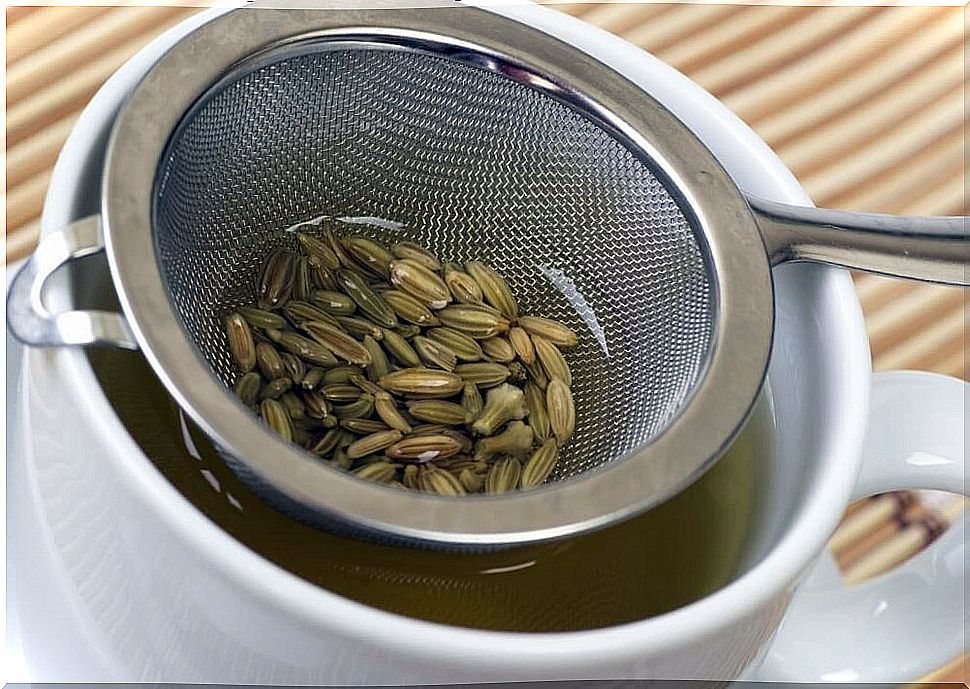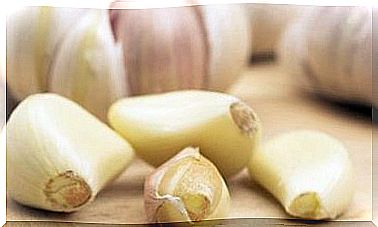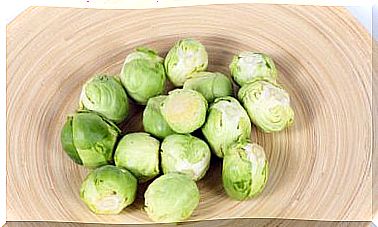5 Natural Remedies For Infant Colic
Infant colic is a concern for many parents. Although they do not usually indicate a serious disorder, the intense and prolonged crying of the baby can be distressing.
This problem is also known as three-month colic or gas colic and is described as a vigorous cry that can extend for more than three hours a day, three days a week.
It usually begins when the baby is between two and three weeks old. Its exact cause is unknown, but it is suspected that it is the air that is being trapped in the abdominal cavity.
Most of the time it disappears by 4 or 6 months of age; however, it can be inconvenient for slightly older babies.
Fortunately, there are several natural remedies whose properties can help calm your little one. Although it is important to follow the pediatrician’s instructions, these solutions can be a great alternative.
Discover them!
Remedies for infant colic
1. Warm compresses

One of the home antidotes to help infants with colic is warm compresses. Its application in the baby’s abdominal area helps eliminate gas and has a calming effect.
What do you need?
- Absorbent towel or cloth
- Warm water (as necessary)
What should you do?
- Dip a towel in a bowl of warm water.
- Put the towel on the baby’s tummy.
- Rub it in in gentle circular motions for 3-5 minutes.
- Repeat the treatment 2 times a day to help the movement of gases.
Note: Avoid using hot packs or heating on babies.
2. Mint infusion
Peppermint leaves have soothing properties that are helpful in relieving colic in infants.
Although it is not advisable to use them in excess or in the form of essential oil, its infusion is adequate against this problem.
Ingredients
- ½ teaspoon of mint leaves (3 g)
- 1 cup of water (250 ml)
Preparation
- Add the mint leaves to a cup of boiling water.
- Cover the drink, let it rest for 20 minutes and filter it with a strainer.
How to use
- Give 2 or 3 tablespoons of tea to the baby.
- Repeat its use 2 or 3 times a day if you consider it necessary.
Note: Menthol can be a bit strong for infants; therefore, you should not use more mint than recommended. In case of unfavorable reaction, immediately discontinue use and consult a doctor.
3. Infusion of chamomile

The antispasmodic and relaxing properties of chamomile can soothe an upset stomach in the baby. It is ideal to help you expel gas, one of the main causes of colic.
Ingredients
- ½ teaspoon of chamomile (3 g)
- ½ cup of water (125 ml)
Preparation
- Pour the chamomile into half a cup of boiling water.
- Cover the drink and let it rest for 20 minutes.
- When it is warm or cold, strain it.
How to use
- Give 2 tablespoons of infusion to the baby, several times a day.
4. Relaxing massage
The application of a relaxing massage can be a useful therapy to calm the crying caused by the infant’s colic.
Gentle movements in the child’s abdominal region help stimulate the elimination of gases and, in turn, reduce pain.
What do you need?
- Baby oil or essential oil (lavender, roses, etc.)
What should you do?
- Apply several drops of oil to your hands and rub it in a little to warm it up.
- Then, massage the baby’s belly in gentle clockwise circular motions.
- Repeat the movements for 3 to 5 minutes, until the baby calms down.
5. Infusion with fennel seeds

Another gentle formula that can treat this problem in babies is the natural drink of chamomile and fennel seeds. Both ingredients have digestive properties that can control gas and stomach discomfort that influence colic.
Ingredients
- ½ teaspoon of chamomile (3 g)
- ½ teaspoon of fennel seeds (3 g)
- 1 cup of water (250 ml)
Preparation
- Add the chamomile and fennel seeds to a cup of boiling water.
- Cover the drink and let it steep for about 20 minutes.
How to use
- When the infusion is warm, almost cold, give 2 or 3 tablespoons to the baby.
- Repeat its use if the discomfort persists.
Note: Limit shots to a maximum of 3 times a day.
Infant colic is normal and can appear for several months. Try not to be alarmed and try to be very patient.
Remember that before trying these natural remedies on your child it is recommended that you consult your pediatrician.









